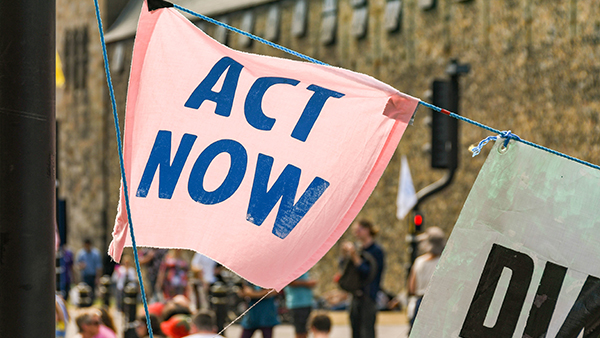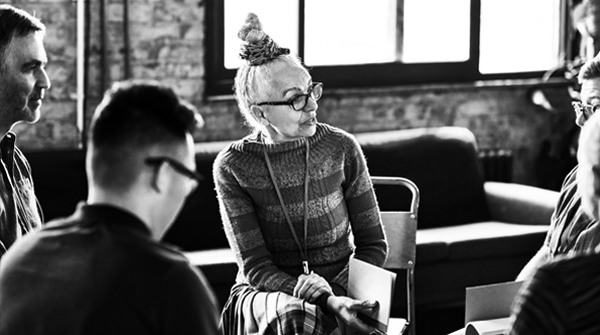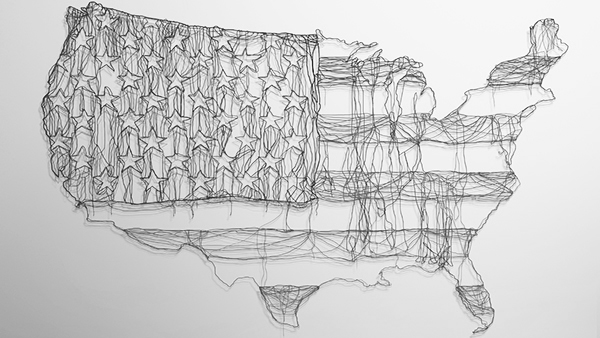Every year my friend Professor Terry Grundy from the University of Cincinnati brings around a dozen of his students to visit the RSA. The topic they most want to discuss is 21st Century Enlightenment. This means I have to brush up on the ideas that featured in my annual lecture back in 2010. Speaking to the group last Friday the basic argument seemed even more relevant to the tempestuous world of 2016 than it was six years ago. I’m interested to know whether you agree.
Autonomy, universalism, humanism
The French historian Tzvetan Todorov describes the three essential ideas of the Enlightenment as ‘autonomy’, ‘universalism’ and ‘humanism’. The ideal of autonomy speaks to every individual’s right to self-determination. Universalism asserts that all human beings equally deserve basic rights and dignity (although, of course, in the 18th and 19th century most thinkers restricted this ambition to educated white men). The idea of humanism is that it is up to the people – not Gods or monarchs - through the use of rational inquiry to determine the path to greater human fulfilment.
Without too much of a stretch, we can equate the ideas, respectively, with modern notions of freedom, justice and progress. So much do we now take these social virtues for granted it is difficult for us to imagine how radical, indeed how revolutionary, they were two hundred and fifty years ago. Although there were many versions of the Enlightenment, differing in emphasis and radicalism, these three principles gave birth to the modern world. Without them the long marches of democracy, civil and human rights, scientific and technological progress would certainly have been delayed and possibly stopped dead in their tracks.
Yet, though in terms of health, lifespan, safety, freedom and opportunity it is better for most people to be alive today than at any time in human history, ours do not feel like enlightened times. We worry about social problems like inequality and a weak collective safety net, about political disenchantment and polarisation, about the weakness of the West and the confidence of autocratic regimes Russia and China, about our inability to face up adequately to the threat of climate change, and about modern ailments ranging from rising obesity and mental illness to social media addiction. These problems seem intractable.
For some the Enlightenment itself is to blame; over the last two hundred years from slavery and colonialism to totalitarianism and environmental destruction Enlightenment values have been prayed in aid of brutal causes. But, the West in many ways on the retreat, the danger today is less about imposing Enlightenment fundamentalism and more about the hollowing out of those three core values. We have lost the richness and complexity of Enlightenment thinking and have failed to renew its ideas in the face of modern challenges and opportunities. In 2016 we should defend Enlightenment principles; not in the way we think about them today, but as the guiding lights they could be were we true to the spirit of the inquiring, optimistic age when the RSA was born.
21st Century Enlightenment
Take autonomy; too often today we think of freedom either as a shrill demand to be able to turn our backs on wider society or in the narrow possessive terms of consumerism. Yet, brain and behavioural science have confirmed the intuition of philosophers through the ages genuine autonomy is something we only attain when we become aware of our human frailties and understand our truly social nature. Of course, freedom from oppression is the base line, but true autonomy is not a right to be granted but a goal to be pursued through self-awareness and engagement in society.
What of universalism, or social justice as we now tend to think of it? In most parts of the world and certainly in the West there have been incredible advances in equal rights. Discrimination and injustice still exist, but through struggle and reform huge strides have been made in widening the Enlightenment brotherhood of rich white men to women, people of different ethnicity, homosexuals and people with disabilities. Indeed the progress in legal equality over recent decades stands in contrast to the stubborn persistence, and even worsening, of social inequality, particularly based on class.
But the rationalist universalism of human rights needs an emotional corollary. People may be careful not to use the wrong words, but they still harbour resentment and suspicion towards other groups. For some of those who felt they had been silenced by political correctness, voting for Brexit or Trump was a chance to be out and proud about their misgivings. The world is shrinking and we are every day more objectively interdependent, yet still we are prone to the evolved human instinct to feel more empathy towards people like ourselves. Perhaps this human characteristic will never change, it is after all very deep seated. But a modern universalism requires us to work harder and more explicitly to put ourselves in the shoes of other human beings. The recent emphasis in various reports on social integration (such as The Casey Review) speaks to the need not just to tolerate others but to share our lives with them if we are truly to see the human race as one.
Finally, humanism or the call of progress. The utilitarian philosophy that arose from the Enlightenment spoke to the idea that, free from the religious or autocratic dogma, the best routes to human fulfilment could be identified and should be pursued. The great motors of human progress – markets, science and technology, the modern state – shifted into gear and started to accelerate. Aspects of all these phenomena, indeed of Enlightenment ideas themselves, could be found at earlier stages of human history - what was different was the way they fed off each other and became dominant. Yet, in the process, the idea that these forces could deliver progress often became elided with the assumption that their development was the same as human progress.
Today this danger of letting the engines of progress determine the direction of the human journey feels particularly acute in relation to markets and technology. There is, for example, more discussion of how humans should best adapt to AI and robots than about how technological inquiry might be aligned with human fulfilment. The hollowing out of democratic institutions has diminished the space for public debate about what progress should comprise at just the time when the pace and scale of change makes those debates particularly vital.
A twenty first century enlightenment reinstates true autonomy over narrow ideas of freedom, it asserts a universalism based not just on legal status but on empathy and social connection and reminds us that humanism should lie at the heart of progress.
Think like a system act like an entrepreneur
There is one new strand I want to add to the 2010 account. In the face of many defeats, we must care as much about how we achieve change as about the goals we pursue. At the RSA we talk about ‘thinking like a system and acting like an entrepreneur’, a method which seeks to avoid the narrowness and path dependency of so many unsuccessful models of change. To alter the course our society is now on we need more fully to understand the high barriers to change but then to act more creatively and adaptively when we spot opportunities to take a different path.
There was a time when the RSA Animate on 21st century enlightenment was getting thousands of new viewers every day but as the flood slowed to a trickle I stopped checking. Given that the original Enlightenment took a hundred years, perhaps we should have been more persistent.
Related articles
-
The public are ready to go further and faster on net zero
Anthony Painter
The public are ahead of policy-makers and, indeed, most of the business world. COP26 is an enormous opportunity to catch up. Global leaders should take it.
-
Can progressives ever stop the in-fighting?
Matthew Taylor
Biden's victory has caused the left and moderates to fracture again.
-
Can President Biden bring America together again?
Anthony Painter
There is a long road ahead for the new president.




Join the discussion
Comments
Please login to post a comment or reply
Don't have an account? Click here to register.
Hi Mathew, thanks for the insights here. As you know the RSA'a views on thinking like a system and acting like an entrepreneur are becoming more prevalent in education circles, no more so that in June at our discussions in OECD. It is a hard road however, and many educational environments end up developing dependency as opposed to autonomy. At least we can see and recognise the light at the end of the tunnel - despite its distance!
Great to see this article - for me 21st Century Enlightenment is a crucial drive, especially up here north of the border. I see a huge role for RSA Scotland to play in kicking off a new Scottish Enlightenment, and through that in connecting to the wider world - the interest was developed during the independence referendum (by both sides) and is just waiting for an Enlightenment organisation like ours to take it forward. Here's to a more Enlightened 2017!